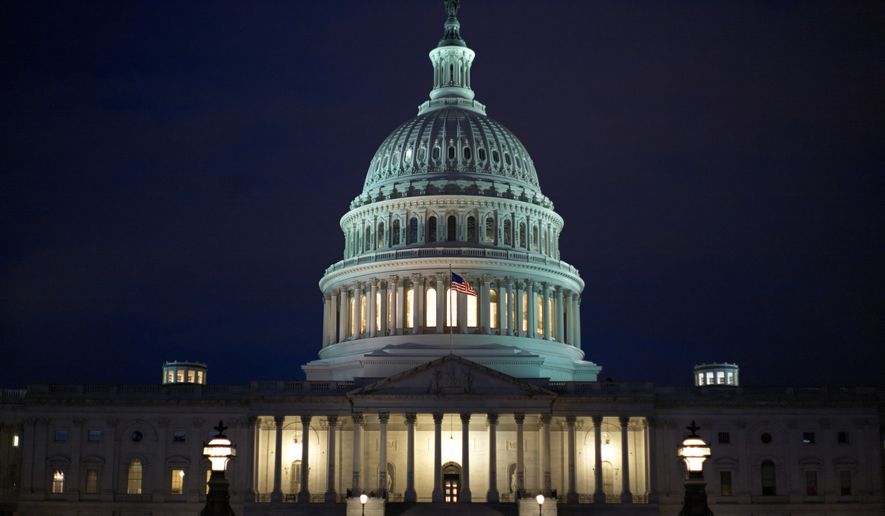OPINION:
Editor’s note: This is one in a series examining the Constitution and Federalist Papers in today’s America. Click HERE to read the series.
Elizabeth Powell was a leading woman in Philadelphia and a political thinker who hosted salons during sessions of the Continental Congress. It did not surprise Benjamin Franklin, then, when Powell approached him at the end of the Constitutional Convention and asked: “What have we got, a republic or a monarchy?” Franklin’s answer: “A republic, if you can keep it.”
The use of the word “republic” in both Powell’s question and Franklin’s answer includes two very important concepts that are at the foundation of the Constitution. First and foremost, they both understood that in a republic, the citizenry were the sovereigns. Government officials were not rulers. They served at the will of the citizens and exercised only such power as the citizens allowed. Second, by “republic,” both Powell and Franklin understood that the power of citizen sovereigns would be exercised through representatives rather than through direct democracy where everybody with a vote gathers to decide every question.
Today we wonder if the Founders got it wrong. Congress is horribly inefficient. It seems that lawmakers have trouble enacting the simplest legislation. There are also concerns that members of Congress are not faithfully representing their constituents, but instead answering to a leadership structure or lobbyists for a variety of interests. Would it not be simpler to just let the people propose their own laws, vote on them, and bypass that problematic Congress?
The Founders actually did consider all of these questions, and it is helpful to recall the reasons they set out for those decisions before we start calling for major changes to the structure of the Constitution.
First, pure democracy was never really an option. The country at the time of the founding was already too big — too spread out — to require everybody to come together to discuss and vote on particular measures. There were too many people, even in the limited group that were allowed to vote in 1787, to give every person a chance to debate every measure.
One of the concerns of the political thinkers behind the founding was the problem of faction. Faction, as defined by James Madison, is a group that acts on a “common impulse of passion” regardless of whether their motivating interest is contrary to the rights of others. We can see that danger today as protests and counterprotests rock our streets. Supposed guarantors of free speech on the internet censor competing viewpoints. Corporations seek to pressure state and local governments to ignore the voices of their citizens, and those corporations are then in turn the subject of boycott.
As Madison wrote, governments run by pure democracy have “been spectacles of turbulence and contention … and have in general been as short in their lives, as they have been violent in their deaths.”
But is not the system chosen by the founding generation broken? What about Congress’ inefficiency, or the way that the so-called representatives ignore their voters and instead follow the will of lobbyists or party leaders?
First, that inefficiency is a feature, not a bug. The founding generation understood that the power of legislation is the strongest power of government. If not tempered, that power would destroy liberty just as certainly as the poison of faction. To protect individual liberty, the Constitution makes it difficult to enact legislation. By slowing down the legislative process, the Constitution provides opportunity for compromise and consensus. Factions are diluted, and it becomes more difficult for those factions to override the rights of minority interests.
It is not a perfect solution. Given enough popular heat, the power of faction can still overwhelm the deliberative process built into the Constitution. It is, however, the best we have been able to come up with and still protect popular sovereignty.
That leads to the second problem — congressional representatives who fail to represent their constituents. It seems that many members of Congress represent lobbyists for major corporations or political interest groups rather than the voters of their districts. In many instances, local voters are ignored at the behest of the leadership of a particular political party.
The Constitution answers this problem as well. As I noted at the beginning, the first and most important meaning of “republic” is that the people are the sovereigns. Elected government officials are not rulers. Instead, they are the servants of the people. But to make that work, the people have to do their jobs. They must act as sovereigns and not merely clients seeking political plums or favors. Each one of us needs to insist on our representatives in Congress representing our interests — not those of the House speaker or the minority leader. We must remind our representatives that it is “we the people” who are in charge — not the lobbyists for corporations and interest groups.
That is the key to the second half of Benjamin Franklin’s answer to Elizabeth Powell. It is only a republic for as long as we do our part to keep it. Without serious engagement in the issues of the day and participation by citizens in the elections, we risk losing our republic. We risk giving up our role as sovereigns and instead become subjects.
• Anthony T. Caso is clinical professor of law at the Dale E. Fowler School of Law and senior litigation fellow at the Claremont Institute.





Please read our comment policy before commenting.